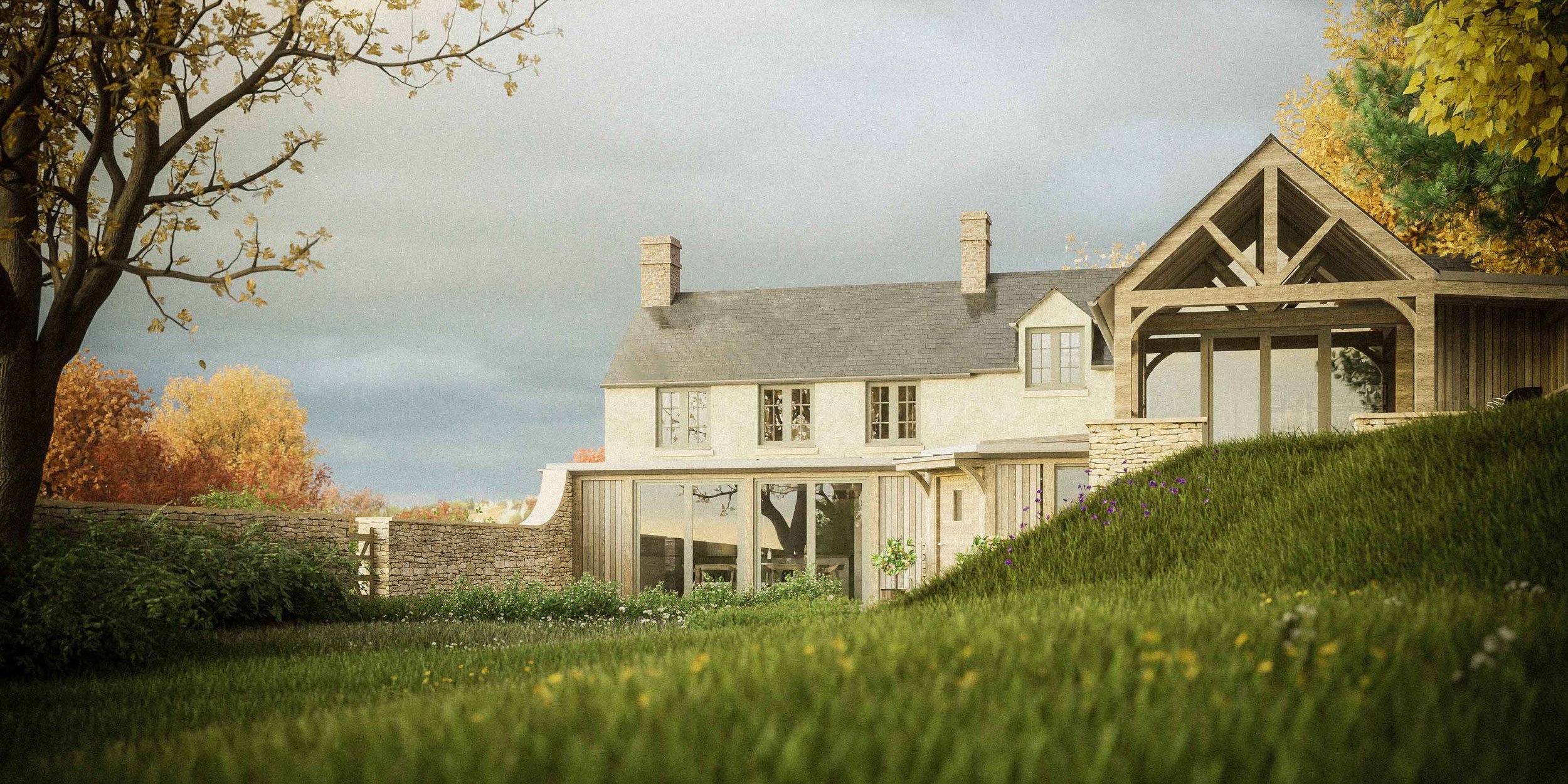
Creative & Sustainable Design for Residential Projects
Joshua Hovey is a RIBA Chartered Architect & Certified Passivhaus Designer, Serving Bristol and Surrounding Areas
Sustainable & Innovative
New-Build
We help self-builders looking to design their dream eco-home, and land owners looking to maximise the potential of their plot. We have a proven track record of securing planning permission within challenging design constraints such as conservation areas, national parks, AONBs and near listed buildings.
Contemporary Extensions
We design beautiful contemporary extensions. Transform your living space by adding natural light, improving the connection with the outdoors and creating harmony between spaces.
Listed and Heritage Property Alterations
Do you have a listed building or period Bristol property which lacks natural light, feels disconnected from the outside and has poor flow between living spaces? We are experts at turning period properties into functional homes, customised for modern living.
Sensitively Designed Barn Conversions
We are architects skilled at working with listed buildings such as barn conversions, in conservation areas and AONBs and with complex design constraints. Let us help you to make the best use of your existing building.
Architecture Practice in Bristol | Joshua Hovey Architects
Key Design Considerations When Planning a Project in the Bristol Area
Navigating Local Planning Policies
When planning a project in the Bristol area, understanding local planning policies is essential for any architecture practice in Bristol. Bristol’s dynamic urban environment and diverse neighbourhoods require adherence to specific planning guidelines. Architects must be familiar with local planning policies, including conservation area restrictions, listed building regulations, and area-specific design standards. Ensuring compliance with these regulations helps to create projects that are both innovative and respectful of Bristol’s architectural heritage.
Incorporating Sustainable Design Solutions
Sustainability is a significant consideration for any architecture practice in Bristol. Projects should incorporate sustainable design solutions to reduce environmental impact and promote energy efficiency. This includes using eco-friendly materials, implementing energy-efficient technologies, and considering sustainable construction methods. By prioritising sustainability, architects can contribute to Bristol’s green initiatives and meet the growing demand for environmentally responsible design.
Harmonising with Bristol’s Architectural Context
Bristol’s architectural context is diverse, ranging from historic buildings to modern developments. Architects must design projects that harmonise with the city’s varied architectural styles and urban fabric. This involves considering the character of the surrounding area, including building materials, architectural forms, and aesthetic details. By ensuring that new projects complement their surroundings, architects can enhance the visual appeal and coherence of Bristol’s urban landscape.
Addressing Urban Design Challenges
The urban environment of Bristol presents specific design challenges that architects must address. These include managing space constraints, enhancing connectivity, and responding to the needs of a growing population. Architects should focus on innovative design solutions that optimise space usage, improve accessibility, and integrate seamlessly with existing infrastructure. Addressing these challenges effectively can lead to functional and aesthetically pleasing outcomes in Bristol’s vibrant urban setting.
Enhancing Community Engagement and Functionality
Creating designs that enhance community engagement and functionality is crucial for any architecture practice in Bristol. Projects should aim to improve local amenities, foster social interaction, and support community needs. This includes designing public spaces, residential areas, and commercial buildings that are inclusive and responsive to the needs of Bristol’s diverse population. By focusing on community well-being and functionality, architects can contribute positively to the city’s social and cultural fabric.
By focusing on these key design considerations, architecture practices in Bristol can develop projects that comply with local planning policies, embrace sustainable design, harmonise with the city’s architectural context, address urban design challenges, and enhance community engagement and functionality.









